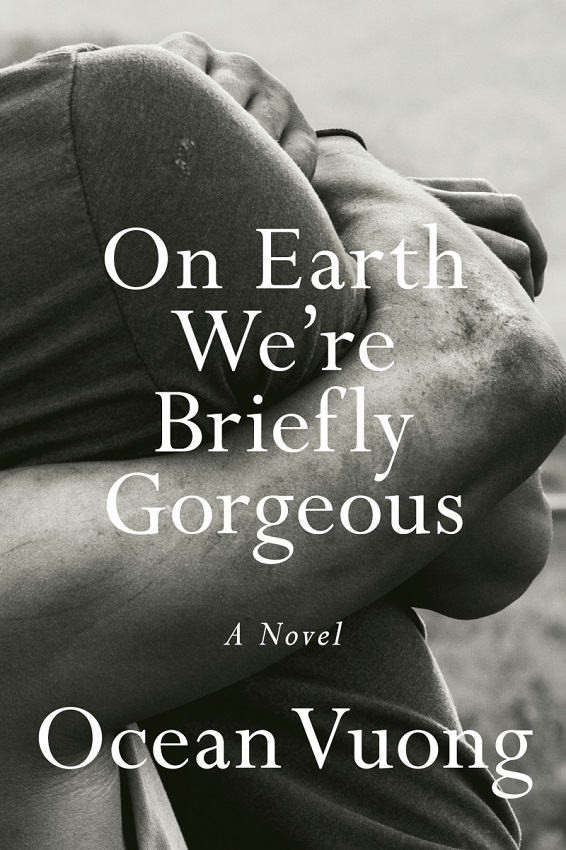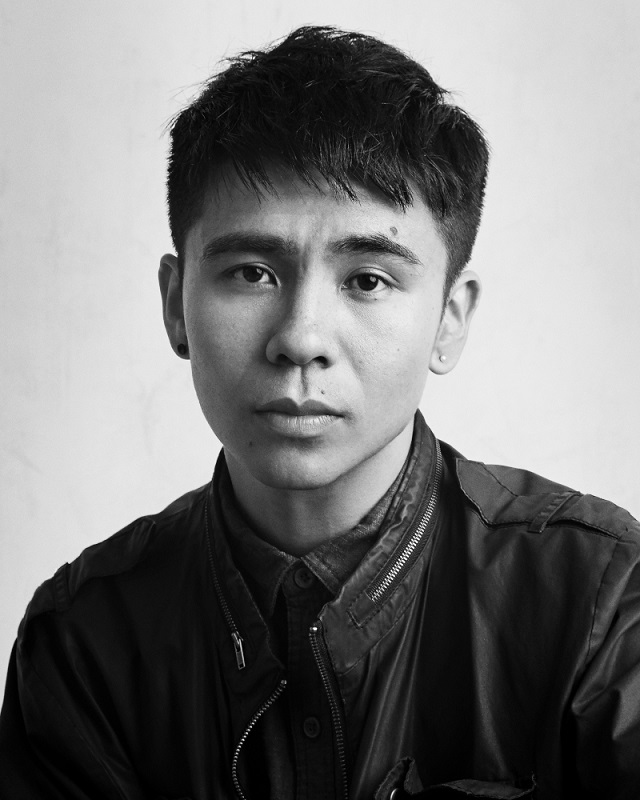
Sometimes, you have a feeling that a book was written just for you. Growing up, I never knew that feeling. Yes, I enjoyed reading and could spend hours with The Hardy Boys, Nancy Drew, and The Boxcar Children. But I never saw myself reflected there: me—a Vietnamese boy, the child of refugees in a working class family.
It took taking an Asian American studies class in college to know it was possible to have Vietnamese American stories. It started with Lan Cao’s Monkey Bridge. Lan Cao led me to lê thị diễm thúy, which led me Aimee Phan and Dao Strom then Monique Truong and Bich Minh Nguyen.
Today, Vietnamese American writers are everywhere. We write fiction and nonfiction and poetry and plays. Our voices are out there in the world and it’s as if, finally, I can see my story mirrored a hundred times—and that makes all the difference.
As a queer Vietnamese American, this goes double when I encounter the work of queer Vietnamese American writers. Which makes the release of poet Ocean Vuong’s debut novel, On Earth We’re Briefly Gorgeous, so special.
On Earth We’re Briefly Gorgeous is a book-length letter of a 28-year-old gay Vietnamese American man to his mother. It is a letter she cannot read, but it doesn’t make it less important. Through impressionistic scenes, Little Dog, the novel’s narrator, builds not only a picture of the life he has with his mother but a landscape of love, memory, and ultimately history.
It starts with life in Hartford, Connecticut, long after Little Dog’s mother has left her abusive husband. Here, the neighborhood is violent, even more so because they are minorities: immigrant and Asian. Outside, gunshots—“piercing yet somehow more mundane than I imagined, like little league home runs cracked one after another out of the night’s park”—are “not uncommon” and fireworks are reminiscent of mortars. The War has left scars on this family, especially Little Dog’s grandmother. In one scene, the family cowers inside, the sounds outside reminding them of war. In between scenes displaying the intimacy of survival are outbursts of familial violence: “The first time you hit me,” says Little Dog, “I must have been four. A hand, a flash, a reckoning.”
But their familial love is strong and Little Dog is a character full of empathy: “I read that parents suffering from PTSD are more likely to hit their children,” he writes, “Perhaps there is a monstrous origin to it. Perhaps to lay hands on your child is to prepare him for war.”
Nevertheless, through violence or time, a rift opens between mother and son and soon Little Dog begins working on a tobacco farm. There he meets Trevor, a white boy from whom he learns “there was something even more brutal and total than work—want.” Working class and already experimenting with prescription drugs, Trevor has a story that is already tragic by the time we meet him and his downfall is all but inevitable.
Still, it is through Trevor that Little Dog finds his own queerness and power in that queerness. In one scene, Vuong writes nothing less than the most beautiful ode to the power of bottoming:
Because submission, I soon learned, was a kind of power. To be inside of pleasure, Trevor needed me. I had a choice, a craft, whether he rises or falls depends on my willingness to make room for him, for you cannot rise without having something to rise over. Submission does not require elevation in order to control. I lower myself. I put him in my mouth, to the base, and peer up at him, my eyes a place he might flourish. After a while, it is the cocksucker who moves. And he follows, when I sway this way he swerves along. And I look up at him as if looking at a kite, his entire body tied to the teetering planet of my head.
Vuong eschews a typical novel plot and readers dip in and out of scenes that build into something like plot but more, unsurprisingly, like a poem. Indeed, Vuong shines the brightest when he writes this novel as if it were a poem in sections where there are line breaks, enjambments, and associative leaps.

At the same time, this is a first novel of a writer who is not yet used to the form. Though poetry gives a writer the opportunity to hone in on imagery and phrases until they shine—to look at an idea through various angles in quick succession—such techniques can cause a kind of fatigue in the novel, slow the pacing, and make the novelist seem unsure of his words. In particular, Vuong relies heavily on repeating himself, an oft-repeated phrase being “which is to say” or variants of that. A few examples:
“I am writing you from inside a body that used to be yours. Which is to say, I am writing as a son.”
“From where you are standing, inches, which is to say years, from this page…”
“But that day, it was the song that offered me a new angle of seeing the world, which is to say, seeing you.”
“I’m not with you ’cause I’m at war. Which is one way of saying it’s already February and the president wants to deport my friends.”
“I remember my father, which is to say I am putting him back together.”
“I remember my father, which is to say I am cuffing him with these little words.”
Poetic language inserted into prose can sometimes, ironically, have the opposite effect, making for a monotonic and one-note read. The unsure novelist also shows up in scenes that feel forced and awkward, inserted as if to make a particular point only to disappear with effect or fanfare (a pitfall of an impressionistic novel: dots don’t always connect.)
The queer Vietnamese American in me, however, can overlook these imperfections for moments that seem so uncannily familiar, so true. The translating of language between generations. The ritual of drinking milk to grow stronger than the American bullies (because growing up you’re always Vietnamese, never người Mỹ). Buying Kentucky Fried Chicken with coupons and calling it “Old-Man Chicken” because “Colonel Sander’s face was plastered on every red bucket.” The particular insecurities that are part of gay sex. Reading On Earth We’re Briefly Gorgeous, I was convinced Vuong wrote this for the younger me, telling him: I see you.
But Vuong sees more than the queer Vietnamese American experience, more than himself and whatever biography that might be here. His vision expands to gaze upon the history of the Vietnamese diaspora and the violence it has endured, the intersections of race and class, the immutable fragility of masculinity. In short, Vuong sees America. And it’s ugly and gritty and imperfect. It kills at home and abroad.
And yet we, some of us, survive: we survive America. Isn’t that something? We survive despite a country that tries to kill our bodies: Vietnamese bodies, queer bodies, American bodies. And as Vuong teaches us: surviving, against all odds, is gorgeous.
On Earth We’re Briefly Gorgeous
by Ocean Vuong
Penguin Press, $26.00


